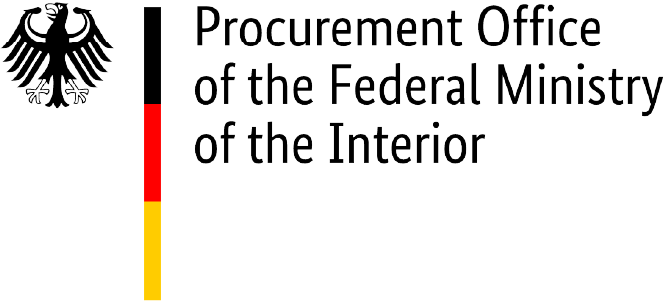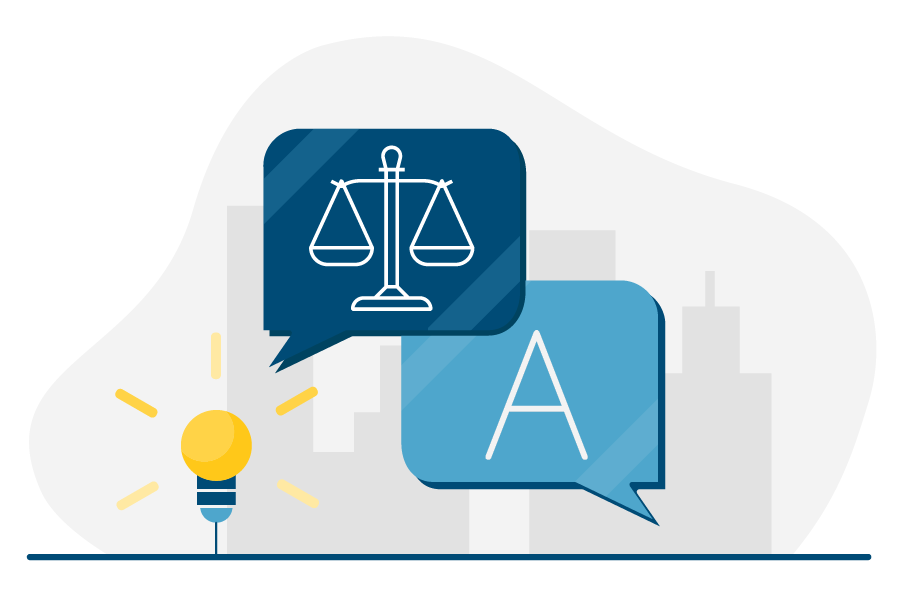Important information: Please note that the federal invoice submission portals, ZRE and OZG-RE, will be consolidated by summer 2025. Following the consolidation, only the OZG-RE will be operated as the sole federal invoice submission portal. The operation of the ZRE will be discontinued as of 31 December 2025. Suppliers will receive all relevant information and the required details for future invoicing directly from the authorities to which they submit invoices. For further details, please refer to this article.
General information – E-Invoicing Ordinance
Electronic invoices are to be sent to which parties?
The following applies to the federal administration: The Ordinance on Electronic Invoicing in Federal Public Procurement (E-RechV) essentially stipulates that electronic invoices must be sent to all invoice recipients who are authorities as defined by Section 159 (1)(1-5) of the Act against Restraints of Competition (GWB) from 27 November 2020. This therefore concerns the highest federal authorities, the federal government’s constitutional bodies, and the direct and indirect federal administration authorities (so-called sub-central public contracting authorities). You will usually receive relevant information for the exchange of electronic invoices from your contracting authority.
The list below also provides an overview of the federal administration authorities and companies that are accepting electronic invoices via the federal government’s platforms. The same requirements for the transmission of invoices apply to all of these invoice recipients. The overview below distinguishes between the ZRE and OZG-RE invoice submission platforms and the recipient federal administration authorities and institutions. The lists will be expanded on a continual basis. At the moment the documents are only available in German language.
![]() Download OZG-RE connection list (DE)
Download OZG-RE connection list (DE)
If you are unsure, contact your contracting authority and ask for more information about electronic invoicing.
Who must send electronic invoices to the federal administration?
Invoice issuers that fall under Section 14 BGB (German Civil Code) and interact with the federal administration in Germany within the scope of public contracts are generally obliged to issue electronic invoices that are in compliance with the E-RechV.
You can read about exceptions to this regulation in the FAQ section on e-invoicing.
From which date must federal invoice issuers submit their invoices exclusively electronically?
Starting 27 November 2020, federal invoice issuers are obliged to submit their invoices electronically in accordance with Section 3 E-RechV. You can read about exceptions to this regulation in the FAQ section on e-invoicing.
In the German federal states, electronic invoice exchange is regulated independently: The corresponding implementation acts define when an acceptance obligation for public authorities exists and whether suppliers/service providers have an invoicing obligation. Enquiries in this regard should be directed to the competent federal state authorities.
KoSIT summarises the implementation status of the German federal states and makes it available.
What is the legal basis for the obligation to issue invoices via e-invoicing?
The E-Invoicing Act of 4 April 2017 (‘Act on the Implementation of Directive 2014/55/EU on Electronic Invoicing in Public Procurement’) supplemented the E-Government Act (‘Act on the Promotion of Electronic Administration’) with regulations on e-invoicing (cf. esp. Section 4a EGovG). With the E-Rechnungsverordnung (E-RechV) of 6 September 2017, further regulations on the design of electronic invoicing were issued by the federal government.
Background information on the legislation can be found here:
![]() Download Directive 2014/55/EU on electronic invoicing in public procurement
Download Directive 2014/55/EU on electronic invoicing in public procurement
![]() Download E-Invoicing Ordinance in Federal Public Procurement (E-RechV) (DE)
Download E-Invoicing Ordinance in Federal Public Procurement (E-RechV) (DE)
![]() Download the timeline of the e-invoicing legislation in Germany
Download the timeline of the e-invoicing legislation in Germany
In the German federal states, electronic invoice exchange is regulated independently: The corresponding implementation acts define when an acceptance obligation for public authorities exists and whether suppliers/service providers have an invoicing obligation.
KoSIT summarises the implementation status of the German federal states and makes it available.
What are the benefits of e-invoicing for suppliers?
The electronic invoice becomes part of an end-to-end digital business process. Processing of electronic invoices is less error-prone and it is faster due to the digital transmission of data. In addition, costs for paper and postage are avoided. It facilitates working from anywhere – whether from home, on the road or in the office: There is full flexibility in invoice processing.
Does a direct order constitute an exception under the electronic invoicing obligation?
In principle, the obligation for contractors to invoice the federal government electronically applies from 27/11/2020 in accordance with the E-Invoicing Ordinance (E-RechV). There are, however, a few exceptions to this obligation. These exceptions are also explained in the individual provisions of the E-RechV. According to Section 3(3)(1) E-RechV, the general electronic invoicing obligation in paragraph 1 of the E-RechV does not apply to direct orders. The direct order is specifically defined in Section 14 of the Regulation on Sub-Threshold Procurement (UVgO):
Services up to an estimated order value of EUR 1000.00 (excluding VAT) can be obtained without having to carry out a procurement procedure, taking into account the budgetary principles of efficiency and economy.
Are non-German invoice issuers obliged to comply with Germany's federal E-Invoicing Ordinance?
Invoices are issued according to the rules of the country of destination. Invoice issuers of the kind specified in section 14 of the German Civil Code (see below) who are involved in public procurement transactions with the public administration in Germany are obliged to submit electronic invoices in accordance with Germany’s federal E-Invoicing Ordinance (E-Rechnungsverordnung, E-RechV). If the invoice issuer is a foreign company, that company is also obliged to submit electronic invoices to the German federal administration.
If you do not have the software to create electronic invoices that comply with the EU standard, you have the option of entering your invoice data manually into a web submission form and then transmitting it to the recipient. This can be done via the federal invoice submission portals. The web interfaces of the federal invoice submission portals are available in English as well as German. Further information and important documents in English and German can be found on our website.
Please note that in addition to e-invoicing, individual contractual arrangements may also apply.
—
Section 14 of the German Civil Code (Bürgerliches Gesetzbuch, BGB):
- An entrepreneur means a natural or legal person or a partnership with legal personality who or which, when entering into a legal transaction, acts in exercise of his or its trade, business or profession.
- A partnership with legal personality is a partnership that has the capacity to acquire rights and to incur liabilities.
What is the difference between the federal administrative portal and the two federal invoice submission portals, the ZRE and the OZG-RE?
According to section 4 (3) of the E-Invoicing Ordinance (E-Rechnungsverordnung, E-RechV), every invoice submission portal of the federal administration must be made available via the central federal administrative portal as referred to in section 2 (2) of the Online Access Act (Onlinezugangsgesetz, OZG). The website www.verwaltung.bund.de is a portal of the federal administration as referred to in section 2 (2) of the Online Access Act. This website offers links to the Federal Central Invoice Submission Portal (ZRE) and to the invoice submission portal which complies with the Online Access Act (OZG-RE). It also provides links to other invoice submission platforms for institutions which are not allowed to connect to the ZRE or the OZG-RE but are required by the E-Invoicing Ordinance to accept electronic invoices. Invoice issuers can access the ZRE and the OZG-RE via the federal portal. This portal does not require registration, but invoice issuers must create a user account to use the ZRE and the OZG-RE, as stipulated in the portals’ terms of use.
To find the ZRE and OZG-RE on the federal portal, enter “ZRE” in the search field of www.verwaltung.bund.de. You will then be taken to the page “Transmit invoices electronically via e‑invoice platforms”. Click on the text or on the word “More”. On the new page, click on “Forms & Online Services”. Under “Related Links”, you will find links to the ZRE and OZG-RE and any other available invoice submission platforms.

